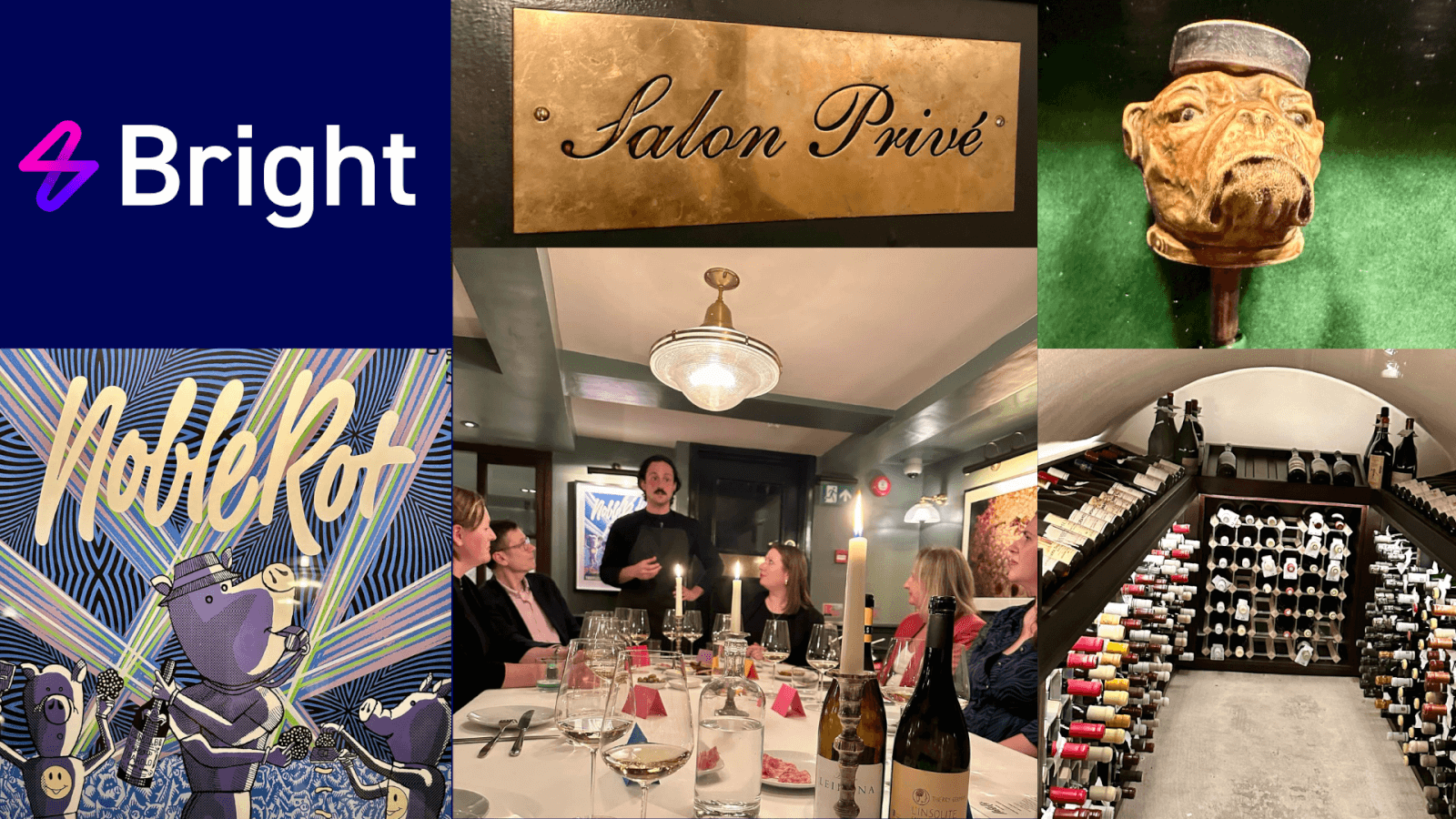The Bright B2B Marketing Leaders Dinner served as a platform for senior marketing professionals to explore AI adoption in complex B2B environments. Discussions took place under Chatham House Rules, fostering open dialogue about the opportunities and challenges AI presents to agile marketing teams. This briefing summarises the core themes from the event.
Key themes and insights:
Embedding AI into agile marketing and ways of working
AI adoption in B2B marketing requires more than just technology; it must be woven into the organisation’s agile marketing processes and ways of working. Marketing teams with agile frameworks are better positioned to test, learn, and adapt AI tools quickly, allowing them to unlock the full potential of AI in their strategies. Successful AI adoption hinges on integrating it into competency frameworks, success metrics, and daily operations. Agile methodologies provide the flexibility required to experiment and scale AI across marketing functions.
Key takeaway: AI should be seen as a tool that provides opportunities across the function to help deliver marketing outcomes. From in-depth data analysis and insights, to developing strategic plans and creative campaigns, the role of AI in marketing will grow exponentially in the coming years. And, while currently most marketers are just dabbling with AI for content creation, having a robust process for AI tool selection, testing and implementation is what will set apart the AI innovators from the laggards.
Testing, guardrails, and demonstrating value
While AI offers exciting possibilities, it’s crucial to establish clear frameworks and guardrails for responsible experimentation. Marketing teams need the freedom to test AI tools, but with safeguards to mitigate risks and ensure that AI applications align with business goals. KPIs should be built into testing processes to measure the tangible impact of AI on marketing operations. Demonstrating early results will help build a business case for wider AI adoption across the organisation.
Key takeaway: Structured testing and clear metrics are essential to showcase AI’s value and ensure responsible usage in marketing campaigns.
Creativity and efficiency gains: Unlocking potential
AI has the potential to free up creativity within marketing teams by automating routine tasks like design resizing, video production, and data analysis. This shift allows marketers to focus on high-value, strategic activities, such as campaign innovation and targeting. However, efficiency gains have been limited to specific tasks rather than widespread across all operations. Time saved through AI automation is often redirected to other critical areas, reflecting the workload complexity typical of B2B marketing.
Key takeaway: AI can enhance creativity and optimise certain tasks, but its broader impact on efficiency will take time to materialise as B2B teams explore more use cases.
Prioritising AI use cases for maximum impact
To ensure the most effective AI adoption, there needs to be top – down consideration of company-wide objectives around areas such as efficiency, productivity, improving customer experience etc as well as marketing teams prioritising use cases based on key criteria such as impact, scalability, and alignment with the business wide objectives. AI tools should be deployed where they can deliver the greatest value to marketing efforts, especially in areas like campaign optimisation and data analysis. Scoring use cases can help determine where to focus resources and ensure maximum return on investment.
Key takeaway: Focusing on high-impact, scalable AI use cases will enable B2B marketing teams to derive more value from their AI investments.
Addressing leadership expectations and adoption challenges
A common challenge is the misconception from senior leadership that AI will immediately reduce headcount or replace marketing teams. In reality, AI in B2B marketing is still in its early stages, and the focus should be on enhancing capabilities rather than replacing staff. It’s important to manage expectations and communicate the strategic benefits of AI, particularly in driving smarter automation and providing actionable insights. Bring transparent with AI experimentation and its results will help those at all levels understand the role of AI in the business, and it can also help to reduce ‘Shadow AI’, the unsanctioned use of AI with an organisations.
Key takeaway: Leaders must focus on AI’s potential to enhance marketing efforts rather than seeing it as a tool for reducing workforce costs.
Training and skills development for marketing teams
AI adoption requires not only the right tools but also consideration of training to equip marketing teams with the skills needed to maximise AI’s potential. Attendees discussed the need for formal training programmes to ensure that teams can fully leverage AI tools and integrate them into their agile marketing workflows. Teams should be encouraged to take a test and learn approach and use experimentation to try things out openly and share the result, this would also reduce the risk of shadow AI use.
Key takeaway: Structured training is essential to ensure marketing teams have the skills to harness AI effectively within agile marketing environments.
Data analysis as a key AI use case
AI’s ability to streamline data analysis was highlighted as one of the most promising use cases in B2B marketing. Tools like Copilot allow marketers to efficiently interrogate complex datasets, providing insights that can drive more informed decisions and targeted campaigns. This enables marketing teams to focus on higher-level strategic analysis rather than manual data handling.
Key takeaway: AI-driven data analysis is a critical area where AI can deliver immediate value to B2B marketing teams by simplifying complex tasks and enabling data-driven decisions.
The importance of the “human AI” sandwich
Near misses, like incorrect translations or missing key details in technical content, show the importance of a “human-AI-human” sandwich approach. First, human input guides the process, setting the context. Then, AI works to quickly create and process the content. Finally, a human checks the output to catch any subtle errors or missed nuances. This layered approach ensures both speed and accuracy, especially when dealing with complex topics where AI might miss the finer details.
Key takeaway: A human-AI-human workflow combines the best of both worlds, ensuring efficient and accurate results.
Conclusion
Mark Breslin, AI expert and dinner guest shares his thoughts…
“Humans are creatures of habit and changing working practices is hard. To help drive sustained adoption of AI inside an organisation, once you’ve landed on high impact use cases that you’ve got the data for and you can measure, think through how the workflows need to change, and make it as seamless as possible.
For example, you want to avoid having colleagues copying and pasting in and out of ChatGPT into multiple tools, you want GenAI integrated with your tooling and your company’s data because that’s how you will achieve ROI. Foster a culture of innovation and experimentation, define the guardrails so controlled failure is okay”.
It is clear that agile ways of working are foundational and provide a framework that allows for the adoption and scaling of AI within marketing and beyond. This dinner revealed valuable insights into how AI can be integrated into B2B marketing by adopting agile marketing, prioritising high-impact use cases, and ensuring that teams are well-trained. As AI continues to evolve, agile marketing environments will enable B2B marketers to experiment, learn, and scale AI initiatives effectively. While efficiency gains are still developing, the potential for AI to drive creativity, enhance data analysis, and support smarter marketing operations is clear.
Our next marketing leaders’ dinner will take place early 2025, attendance is by invitation only, you may request a place on the waiting list here


